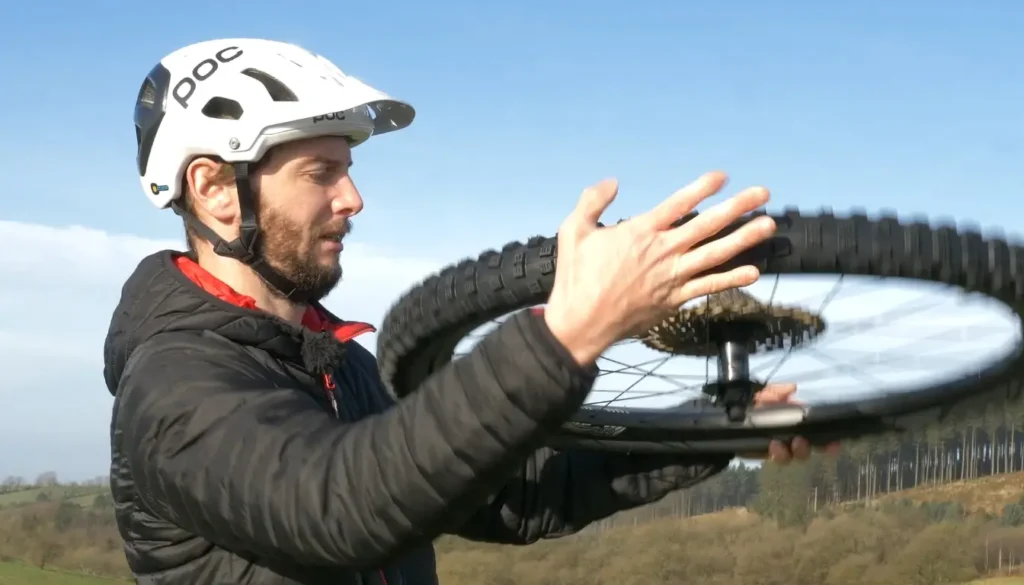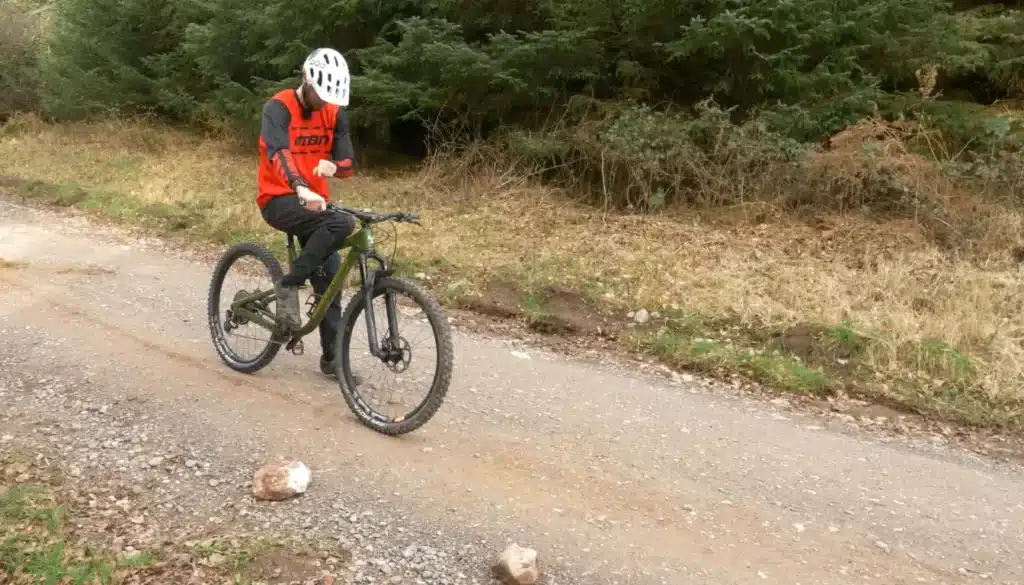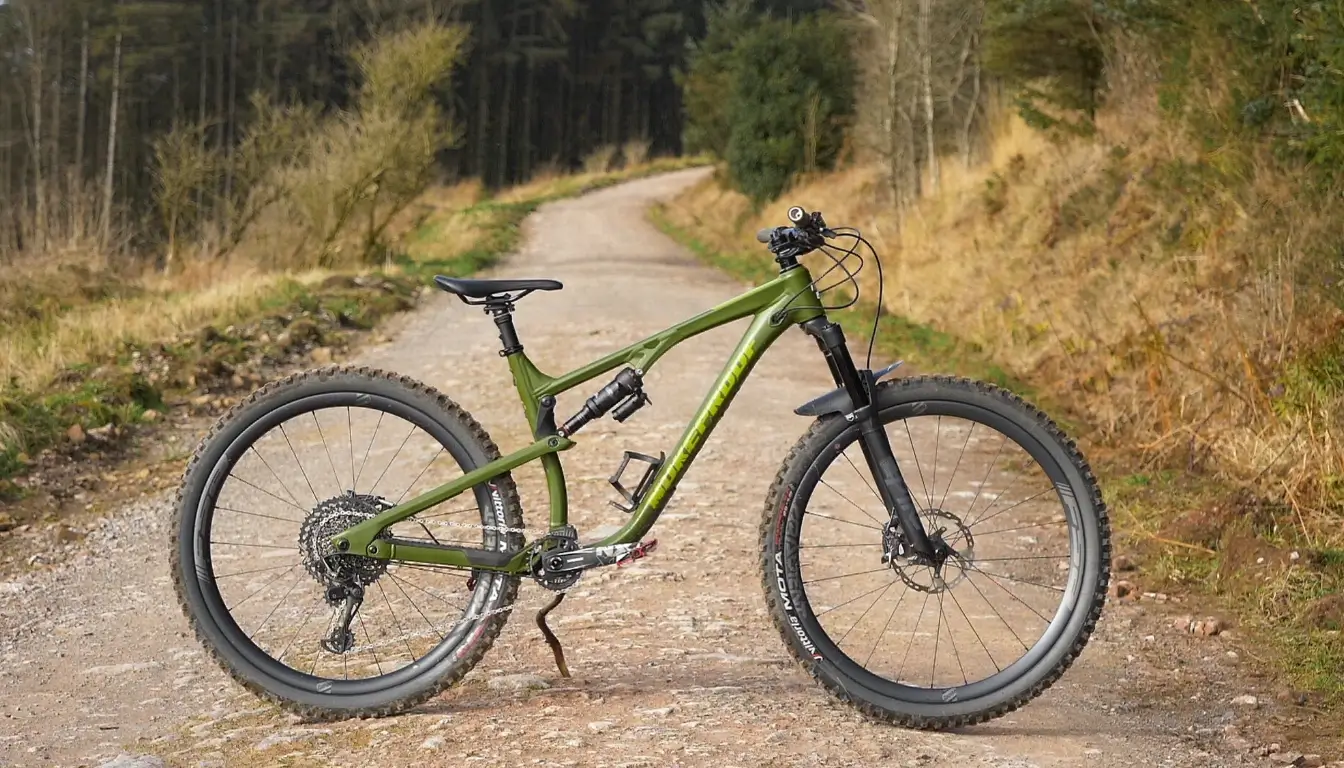Mountain Bike weight is essential everywhere. Especially if you go off-road riding, your bike’s weight significantly affects the vehicle’s speed.
A Mountain bike’s weight affects the overall riding experience. Your bike’s weight can make your biking easier or harder. Afterward, your bike’s weight and pedal play a role too. We’ll get to that in detail in the article.
Speeding up on heavy bikes is as hard as slowing down. They like to continue the motion they are doing. If your heavy bike is speeding, it will want to preserve its speed. If it’s slowing down, it will want to slow down and ultimately become harder to accelerate.
This post goes into the scientific stuff behind why weight matters in a mountain bike. Stick around if you’re interested.
What is the Average Weight of a Mountain Bike?
The standard weight of a mountain bike is 29 pounds. The number varies from bike to bike.
A lightweight mountain bike may weigh about 21-22 pounds. But the maximum limit for traditional mountain bikes is 37-38 lbs. Many factors play a part in the weight of the bike.
The average weight is given, excluding the biker’s mass. We are talking about the bike individually here. While this doesn’t go in-depth with how much weight capacity an MTB has, you now know how much an average mountain bike weighs.
Parts like tire pressure, wheel size, rim material, brakes, etc., play roles in giving the bike weight. However, it truly depends on the mountain bike model. If you notice closely, mountain bikes have gotten heavier in recent years.
We all lived by the motto, the lighter, the better. Thankfully, the stigma has changed, and for good. Companies have started using heavier and more sophisticated materials for their bikes. We love to see it.
What Parts Play a Role in Adding Weight to Your Bike?

You may think all parts of your bike are made to play a role in adding weight to your bike. That’s partially true, but what really adds weight are the primary things. Your bike also gets heavier when you modify parts as well.
If you’re into lighter mountain bikes, go for the most lightweight modifying gear.
The Wheels
First and the primary adder of weight to your bike. The wheels carry one-third or at least thirty percent of your bike’s weight. This doesn’t mean you should ditch your wheels and get lighter ones; rigid wheels are needed for the best traveling experience.
Drivetrain
This is an underrated one, but the drivetrain, including its secondary parts, can add to your bike’s weight. Secondary components are the chain, gears, metal parts, etc.
The frame
As we mentioned, companies are now using more premium stuff to build their parts. Which naturally means an increase in weight. The frames of mountain bikes have gotten heavier over the years significantly. So, your bike’s frame could be another valid reason for the MTB to be heavy.
Fork and Gear
Fork and gears are insignificant in size, so they don’t add much to the mass. But they contribute as no matter the size, they have weight and are made of metal.
These may add weight to your bike but understand that these parts are vital and cannot be replaced.Can a Lightweight Mountain Bike Make You Faster?
Yes and no. A lighter mountain bike obviously has its perks, but getting a more lightweight mountain bike won’t magically make you faster; you need skills.
Getting a better bike and modifying parts might give you a little push over an increase in speed. But you won’t go from riding 15 mph to 30 mph overnight by getting a new bike. Shocker, we know.
Moreover, it is two-thirds the skill and one-third the bike. A professional mountain biker will beat the guy with the expensive bike just because the pro knows the techniques and how to utilize them. A lightweight bike won’t come to your advantage, then.
Lastly, it’s not always sorrow. A heavy bike will perform better while riding on downhill trails. Heavy bikes function quite the opposite on trails. It’s hard to ride on an elevated surface; similarly, it’s easier to ride downhill.
You can use this advantage while going down from a lightweight bike. Lighter bikes are prone to accidents while going down as it’s going faster than the heavy bike, and the rider will need profound control over the bike.
Does Rider’s Weight Matter During Mountain Biking?

Many people debate this one. Some might say it does matter, and some will disagree. We, however, are on the middle ground. The rider’s weight does matter, but it’s only minor. The most weight that actually matters is the bike itself.
Rider’s weight matters for bike control. A heavy rider will have less control over their bike than a less heavy rider. As simple as that.
Can You Make Your MTB Lightweight?
This may sound crazy, but you can make your mountain bike lightweight by adjusting it.
Change Wheels
With the help of technology, nowadays, you can make adjustments to any of the parts. The first step to making your MTB lightweight is getting a lighter wheel. You can reduce your bike’s weight significantly by doing so.
Go Tubeless
Along with wheels, traditional bikes have inner tubings in them. Going tubeless can help in reducing your bicycle’s mass big time.
Another important advantage of tubeless tires is that they can reduce punctures too. Tubeless also helps maintain bike pressure, so the choice is yours.
Use Clipless Pedals
Using clipless pedals can help decrease some weight, and it also helps in increasing speed. Most professional mountain bikers use clipless pedals to take full advantage of their bike and be as lightweight as possible.
Aside from these, you can change your bike’s framing with carbon fiber, which might hurt your wallet. We promise it’s worth it.
Wrapping Up
How Important Is Weight on a Mountain Bike? It’s more crucial than most riders think. Your bike’s weight can actually help prevent accidents by improving control and handling. On average, a mountain bike weighs around 29 pounds, though this can vary. To truly understand how important weight is on a mountain bike, you need to consider which components add the most bulk like tires, pedals, and frames and whether they suit your riding style.
Switching to tubeless tires, clipless pedals, or lighter materials can reduce overall weight. While a lighter bike might slightly improve speed, it won’t make you dramatically faster; rider skill is the real game-changer. And unless the rider is significantly heavy, their weight has less impact on performance than the bike’s build itself.

I am Ryan Ford, a mountain biking enthusiast who loves to explore the outdoors. I also like to go on adventures with friends and anything else that involves being outside. I love my bike because it gets me out of the house and gives me an opportunity to enjoy nature.

